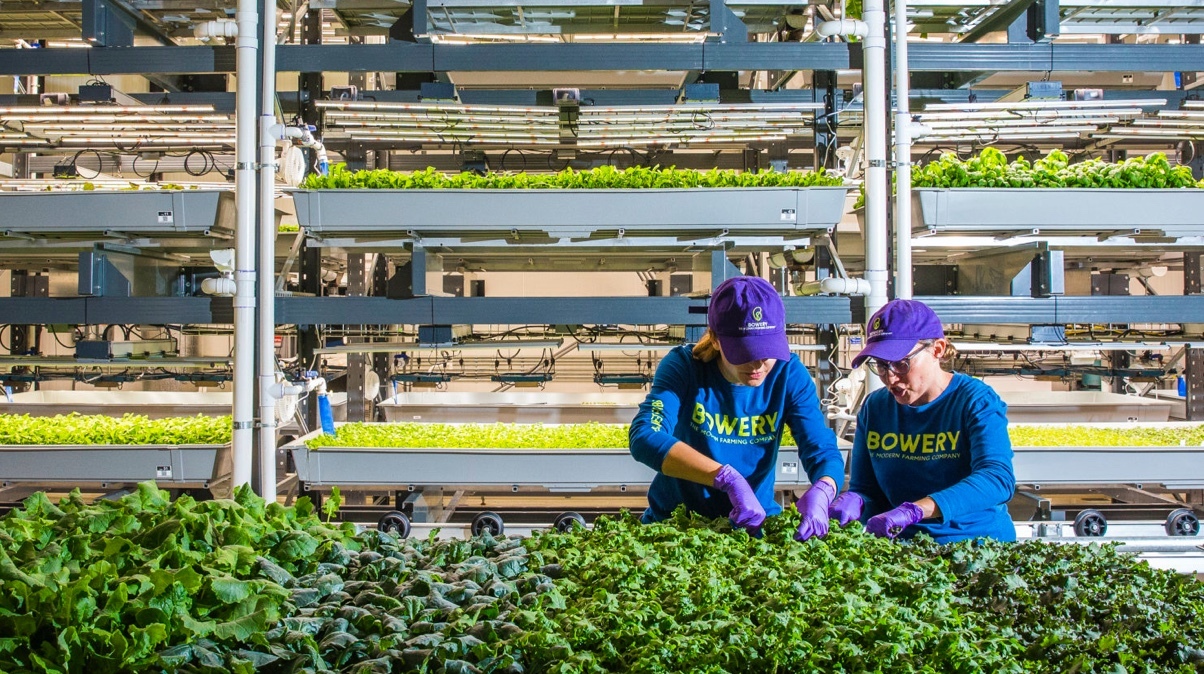From chip shortages to packed shipyards to expensive gas prices, the recent supply chain issues have impacted almost every part of our daily lives, leaving many to wonder if our food supplies may be next. This year alone, inflation has caused an almost 10% increase in food costs. While it’s almost certain that the shelves of our grocery stores will remain stocked for the foreseeable future, a new farming company out of New Jersey hopes to decrease the volatility of the produce market with its recent innovation in vertical farming technology.
Just 11 miles from New York City in Kearny, NJ, Bowery Farming is growing strawberries indoors and year-round, and selling them to consumers in the tri-state area. With almost 90% of American strawberries coming from California and another 8% from Florida, vertical farming stands to revolutionize the way food is grown and transported. Instead of transporting fresh produce across the country, vertical farming will allow for more plants to be grown locally, increasing food quality and decreasing transportation costs. More globally, this technology has the potential to remove food deserts, and allow certain produce to be grown in countries where it has been unable to in the past.
Bowery Farming and its competitors have recently moved into strawberry production, a step up from their previous production of lettuce and herbs, and look toward expanding production of different fruits and vegetables, including tomatoes, broccoli, and carrots. These companies have also seen adoption by large retailers such as Wal-Mart, who have begun selling vertically-farmed products in the stores, albeit in minimal amounts.
Although there seems to be a large potential for the future of vertical farming, there is still a long way to go before the technology becomes mainstream. The current prices of the food produced well exceed that of its supermarket counterparts, with a small box of strawberries grown by Bowery selling for $14.99. The company hopes that innovation and expansion will reduce its prices, and plans to have comparable prices in the near future.
A bigger issue for modern vertical farming is its energy consumption. With most vertical farms requiring large arrays of LED lights, many companies are left to rely on an energy grid powered by fossil fuels, negating any positive environmental impact produced. Many of the companies in the space are preparing to fight this challenge, with Bowery planning to establish a microgrid of solar power to hamper their energy costs, and reduce fossil fuel consumption by around 25%. As with the farming tech itself, the company hopes that future innovations will allow their farms to be sustained entirely on renewable energy.
While there seems to be a good amount of hurdles vertical farming needs to overcome before it can reach mainstream adoption, many are hopeful that the technology will eventually grow into our main source of produce. As long as these companies can continue to innovate in the space, we may see locally grown fresh fruits and vegetables at our grocery stores year-round, even in the most remote locations of the country.

Be First to Comment